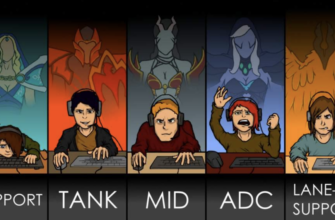ENTP is one of the 16 different personality types identified by the Myers-Briggs Type Indicator. The ENTP personality type is:
- Extraverted
- Intuitive
- Thinking
- Perceiving
People with the ENTP personality type are often described as innovative, clever, and expressive. ENTPs are also known for being idea-oriented, which is why this personality type has been described as «the innovator,» «the visionary,» and «the debater.»
Illustration by JR Bee, Verywell
ENTPs are less interested in the here-and-now details than they are in generating ideas and theories. Because of this, they sometimes tend to come up with one idea after another without actually going forward with plans and actions to bring their creative notions to fruition.
- Is the ENTP personality type rare?
- ENTP Cognitive Functions
- Extroverted Intuition
- Introverted Thinking
- Extroverted Feeling
- Introverted Sensing
- ENTPs You Might Know
- ENTP-T and ENTP-A Subtypes
- ENTP Personal Relationships
- Who is ENTP compatible with?
- ENTP Career Paths
- Tips for Interacting With ENTPs
- Frequently Asked Questions
- The overview of ENTP Enneagram
- The ENTP Enneagram with 9 Types
- ENTP Enneagram type 2
- ENTP Enneagram type 3
- ENTP enneagram type 4
- ENTP Enneagram type 5
- ENTP Enneagram type 6
- ENTP Enneagram type 7
- ENTP Enneagram type 8
- ENTP Enneagram type 9
- ENTP Introduction
- What Does ENTP Stand For?
- Personality Traits of The ENTP Group
- III. The Cognitive Functions of The ENTP Group
- ENTP Values and Motivations
- ENTP Motivations
- Strengths and Weaknesses of ENTPs
- ENTP Weaknesses
- Personal Relationships of ENTPs
- Romantic relationship
- Friendship
- Parenthood
- Relationship with other personality groups
- VII. Career Paths and Development Areas of ENTPs
- VIII. How ENTPs perform in the work and learning environment
- 10 Things you might not know about ENTPs
- ENTP Famous people
- ENTP-T meaning
- ENTP-T Characteristics
- Emotions
- Dealing with Insecurities and Anxiety
- ENTP-T and their image
- Dealing with Stress
- Communication
- Routine
- III. Career Choices
- Ключевые особенности личности
Is the ENTP personality type rare?
According to psychologist David Keirsey, the creator of the Keirsey Temperament Sorter, ENTPs are known as Rational Inventors. He suggests that the Rational personality type is rare, accounting for around five to 10% of the population. In fact, ENTP is considered one of the rarest personality types, along with the INFJ, INTJ, and ENFJ types.
- ENTPs enjoy interacting with a wide variety of people. They are great conversationalists and love to engage other people in debates.
- They are more focused on the future rather than on immediate details. They may start projects and never finish them because they are so focused on the big picture rather than the present needs.
- They tend to reserve judgment. Instead of making a decision or committing to a course of action, they would prefer to wait and see what happens.
- ENTPs are immensely curious and focused on understanding the world around them. They are constantly absorbing new information and ideas and quickly arriving at conclusions. They are able to understand new things quite quickly.
One common myth about ENTPs is that they love to argue simply for the sake of arguing. While people with this personality type are often willing to play the devil’s advocate at times, they enjoy debates as a way of exploring a topic, learning what other people believe, and helping others see the other side of the story.
- Can be argumentative
- Dislikes routines and schedules
- Does not like to be controlled
ENTP Cognitive Functions
Based upon Carl Jung’s theory of personality, the MBTI categorized personality types by their cognitive functions (intuition, thinking, sensing, and feeling) which can then be directed outwardly (extroverted) or inwardly (introverted).
The hierarchical organization of these functions is what establishes each individual’s primary pattern of behavior. The dominant function is the most prominent, although it is supported by the auxiliary function. The tertiary function has less of an influence, while the inferior function tends to be an area of weakness.
Extroverted Intuition
- ENTPs tend to take in information quickly and are very open-minded.
- Once they have gathered this information, they spend time making connections between various complex and interwoven relationships.
- They are good at spotting connections that others might overlook and tend to be focused on possibilities.
- They have entrepreneurial minds and are always coming up with new and exciting ideas.
Introverted Thinking
- ENTPs are logical and objective. When making decisions, they place a greater weight on rational evidence instead of subjective, emotional information.
- This function works to help the ENTP understand all the information that comes in through the extroverted intuition function. This involves imposing logic and order to help make sense of many disparate ideas and pieces of information. ENTPs don’t want to just understand that something works — they want to understand the why and how behind how things function.
Extroverted Feeling
- As a tertiary function, this aspect of personality may not be as well-developed or prominent.
- When developed, ENTPs can be social charmers who are able to get along well with others.
- When this aspect of personality is weaker, the ENTP may be insensitve to others and can even be seen as aloof or unkind.
Introverted Sensing
- The introverted sensing function is centered on understanding the past and often applying it to current experiences and future concerns.
- This is often a point of weakness for ENTP personalities. They are often focused more on possibilities and may fail to consider how past precedents may help predict outcomes.
- ENTPs also tend to overlook many of the more mundane details of daily life, especially if they are deeply involved in a project or plan.
ENTPs You Might Know
- Thomas Edison, inventor
- John Adams, U.S. President
- Walt Disney, filmmaker
- Julia Child, cook
- Alexander the Great, King and military leader
ENTP-T and ENTP-A Subtypes
ENTPs can be further categorized into two groups: ENTP-T and ENTP-A.
- ENTP-Ts are «turbulent debaters.» They seek approval, agreement, and attention, and often feel anger, jealousy, or envy. Their behavior is more emotionally driven than ENTP-As.
- ENTP-As are «assertive debaters.» More confident than ENTP-Ts, ENTP-As assume that people accept them and aren’t as interested as ENTP-Ts in discussing their feelings. They tend to be less emotionally reactive.
ENTP Personal Relationships
Since they are identified as extroverts, it may come as no surprise that ENTPs have very good people skills. They are skilled communicators and enjoy interacting with a wide circle of family, friends, and acquaintances. In conversations, other people often find them quick-witted.
ENTPs will often engage in debates simply because they enjoy having a good battle of the wits. Sometimes, their love of debates lead ENTPs to take on the role of the devil’s advocate, which can sometimes lead to conflicts with others who feel like they are being intentionally combative and antagonistic.
Who is ENTP compatible with?
While the ENTP personality can successfully have healthy relationships with people of any personality type, they tend to be most compatible with people who can provide balance to their dominant extraverted intuition function. In terms of dating and marriage, some highly compatible personality types include INTP, ENTP, ESFJ, and ISFJ.
ENTP Career Paths
Routines and boredom are not good for the ENTP personality. They are non-conformists and do best in jobs when they can find excitement and express their creative freedom. ENTPs can be successful in a wide range of careers, as long as they do not feel hemmed in or bored.
As debaters with great communication skills, careers in law can offer the challenge and diversity that ENTPs crave. Jobs in the business world that combine the ENTPs rationality, creativity, and natural leadership abilities can also be very rewarding.
Tips for Interacting With ENTPs
If you know an ENTP, there are some strategies that can help you better understand that person and get the most out of your interactions. Whether that person is your friend, your child, or your partner, here are a few tips that can help you know what to expect:
ENTPs are great at getting along with people no matter what their personality type. While they are usually laid-back, they can be quite competitive. If you are friends with an ENTP, be careful not to get into the habit of trying to out-do each other. Be aware of their love for debates and be careful not to escalate good-natured discussions into combative arguments.
Parents of ENTP children should be aware that their children may seem argumentative at times, it stems from their natural love for discussion and debate. They may also seem inconsistent at times, being warm and affectionate in one moment and then withdrawing in the next as they become wrapped up in new ideas. Parents should encourage their children to focus on goals and finish the things that they start.
Be aware of your ENTP partner’s need for spontaneity. You can help balance your partner’s impulsiveness by helping them work toward their goals with enthusiasm and practicality.
Frequently Asked Questions
- Is ENTP a good personality?There is no personality type that is better than the others. Each has its own strengths and weaknesses. For the ENTP, their creativity, communication skills, and generally good-natured attitude means they can be successful in a wide range of situations.
- What are ENTP weaknesses?The ENTP personality type is creative but has a strong dislike for schedules and regular routines. They struggle in situations where they feel controlled and can be unfocused at times. They enjoy conversation and debates, but this can sometimes leave others with the impression that the ENTP is argumentative and insensitive.
:max_bytes(150000):strip_icc()/IMG_9791-89504ab694d54b66bbd72cb84ffb860e.jpg)
By Kendra Cherry
Kendra Cherry, MS, is the author of the «Everything Psychology Book (2nd Edition)» and has written thousands of articles on diverse psychology topics. Kendra holds a Master of Science degree in education from Boise State University with a primary research interest in educational psychology and a Bachelor of Science in psychology from Idaho State University with additional coursework in substance use and case management.
Thanks for your feedback!
Today we’re going to explore the nine different types of ENTP Enneagram, and some significant differences in how they show up in the world.
The overview of ENTP Enneagram
There are infinite differences from one individual to the next. Life experience, maturity, and job all have an influence on how we present ourselves to the world.
ENTPs are the MBTI personality type debaters. They are well-known for their clever quips and never-ending thoughts. ENTPs provide a unique flavor to every conversation and are masters at thinking outside the box.
Your Enneagram type is one of the most important factors that may influence you and how you portray your type. An ENTP Enneagram 2 will seem significantly different from an ENTP Enneatype.
Today, we’ll look at the nine distinct varieties of ENTPs and the considerable variances in how they manifest themselves in the world.
The ENTP Enneagram with 9 Types
This ENTP is unlikely to identify with the stereotypes of ENTPs as slackers or procrastinators. Above all, this ENTP Enneagram wants to make the proper decision. They discuss and examine possibilities to ensure that what they are doing is consistent with their inner sense of integrity. One is the rarest Enneatype for ENTPs, according to a poll performed by typology specialist Heidi Priebe. These ENTPs are more self-critical, detail-oriented, and self-disciplined than ordinary ENTPs.
ENTP Enneagram type 2
ENTP Enneagram type 2 is an uncommon Enneatype for the ENTP who is motivated to assist others and exhibits pleasant sentiments for them. Twos, often known as «The Helpers,» captivate people with their energy, kindness, and loving attitude. The ENTP personality type adds a new twist to the Two Enneatype. They offer the Two’s warmth and giving, but with a more lively, inquisitive side than is normal. ENTPs are, of course, Thinking personalities.
ENTP Twos, on the other hand, rely significantly on their tertiary Feeling function. Somehow, life events have taught this ENTP that in order to be respected and useful, they must be unselfish. They must contribute and maintain giving without ever asking for aid in return. They like it when others come to them for help, advice, and troubleshooting. They look into many possibilities for individuals and come up with new, unique methods to assist them.
ENTP Enneagram type 3
The ENTP Enneagram 3 personality type is the ultimate smooth-talking successful businessman. A type 3 person is a natural charmer and performer who uses tert-Fe to woo people but frequently does not know what is real (the persona) and what is not (his/her true self).
They believe they must brush their emotions under the rug in order to be more effective and perform at their best. Their natural intuition leads them down many paths, but unlike some ENTPs who struggle with slacking and leaving projects incomplete, these ENTPs are better at finishing what they start. They are competitive and concerned about their image.
ENTP enneagram type 4
ENTP Enneagram type fours are driven to find their unique place in the world, which is a relatively rare Enneatype for the ENTP. Growing up, they frequently felt misunderstood and out of place in their families, and they hope to find their identity in a world that appears conformist or callous.
This ENTP is in touch with their creative process and sees potential and imaginative possibilities in almost everything around them. They will appear more introverted and in touch with their subjective feelings than most ENTPs. This ENTP is deeply idealistic and self-aware, capable of discovering surprising truths about life and the world.
ENTP Enneagram type 5
ENTP Enneagram Five person is a more focused, less distracted ENTP who understands a hundred facts about a thousand different things but struggles to recall specifics, making them less confident in interacting with the exterior sensory environment. These people are more introverted and quickly tired, and they are less likely to take control.
ENTP Fives are afraid of being overpowered or overly influenced by others. They aim to maintain as much independence and objectivity as possible. Because they are more reclusive than the average ENTP, many ENTPs of this Enneatype get mistyped as INTPs. However, their dominant-flow condition is still one of ideas and possibilities, rather than logic and rigorous analysis.
ENTP Enneagram type 6
ENTP Sixes are quite uncommon, and they frequently feel unsure of their Enneatype, switching back and forth between numerous possibilities since they perceive aspects of themselves in several types. They may be pleasant and kind one minute and suspicious and hostile the next.
ENTP Sixes play devil’s advocate for virtually any concept or hypothesis, quickly identifying flaws and logical contradictions. The Six ENTP is frequently more cautious than the normal ENTP, however if they are the countertype (Sexual) Six, they might appear much more aggressive and risk-taking.
ENTP Enneagram type 7
The majority of ENTPs picked 7 as their Enneagram type (Type 7 with a 6 wing: 27 percent ; Type 7 with an 8 wing: 73 percent ). Because this type is strongly associated with the ENTP’s primary function of extroverted intuition, this coupling makes sense.
At their heart, type 7 ENTPs are driven by the dread of getting imprisoned, stuck or stagnant in their life. They are continually moving away from a life of scarcity and toward a life of diversity and richness. These ENTPs have the most in common with their sensory-oriented relative, the ESTP.
When compared to other type 7 enneagrams, these people are more dedicated and hardworking at work, going the additional mile. They like to prioritize work and ensure that all chores or assignments are done. This is fueled by their natural drive to do whatever they have pledged to complete. The 7w8 enneagram is also more assertive and defensive in their conduct — they want to maintain their composure.
At the same time they are very enthusiastic individuals. They like to be energetic in whatever they do rather than take a sluggish or half hearted approach in what they do. They are keen to get things done and take an interest in whatever is on their schedule that needs attention.
ENTP Enneagram type 8
A sizable proportion of ENTPs selected 8 as their Enneagram type (Type 8 with a 7 wing: 90 percent ; Type 8 with a 9 wing: 10 percent ). Though this type is most closely associated with the extroverted thinking function, the combination of extroverted intuition and introverted thinking may resemble the expression of extroverted thinking in many ways Therefore it is not unexpected that many ENTPs identify as type 8.
The ENTP Enneagram Type 8 is generally very enterprising and industrious, leveraging the inventiveness of their extroverted intuition and the focus of their introverted reasoning to outperform opponents in the workplace. Because they are more focused on what they want, these ENTPs come across as more aggressive than their type 7 counterparts. They are eager to assert authority in social situations and like that the power dynamic always favors them.
Though both kinds detest being restricted, the type 8 ENTP fears being constrained, whilst the type 7 ENTP finds it very uncomfortable.
Type 8 ENTPs are motivated by a fear of being dominated or exploited by others. They seek authority in order to preserve total autonomy, and their behavior is most comparable to that of the ENTJ.
Furthermore, they may be silent at first, but when the time comes, they will stand up and defend their own or others’ positions.
Despite their tendency to roam about in their minds, these enneagram types are excellent at dealing with others and taking practical measures. They make sound judgments and prefer to do so on their own, without much supervision. They are great dreamers with an idealistic goal. They aim to establish a world or society in which individuals have the option of going large or going home.
This enneagram type, on the other hand, is terrified of losing their autonomy, which may explain why they are so self-sufficient: they want to reassure themselves that they can handle most issues on their own. At the same time, these people have difficulty being emotionally honest or vulnerable.
ENTP Enneagram type 9
This type has the fast thought process and intellectualization of the Ne-dom, but is also conscious that some of their more contentious ideas and analyses may cause societal upheaval and friction, thus they are more likely to stay silent about it and/or finalize their thoughts before sharing them.
Nines, like Eights and Ones, suppress a part of their personality, notably their instincts. Instead of succumbing to their aggressiveness (as the Eight does), they suppress their capacity to exert themselves. They like relaxed, stress-free relationships and dislike being micromanaged, controlled, or scolded. Laughter, creativity, and a relaxed way of living help children feel at ease.
ENTP Introduction
The ENTP personality type is talkative, curious, and impulsive in their behavior. ENTPs are inspired by innovators who are compelled to provide novel solutions to cognitively challenging problems. These MBTI personalities are open-minded and unconventional, and they strive to investigate, comprehend, and influence others.
What Does ENTP Stand For?
ENTP stands for Extraversion, iNtuition, Thinking, and Perception and is one of 16 personality types studied from the MBTI test (Myers-Briggs Type Indicator). The MBTI personality assessment developed by Isabel Briggs Myers, Katharine Cook Briggs, and David Keirsey from the work of psychiatrist Carl G. Jung, the types of psychology based on theories of cognitive functions. Keirsey named ENTP The Visionary/ The Debater because they are very passionate about coming up with new ideas. ENTP is one of four personality types of The Rational.
Personality Traits of The ENTP Group
ENTPs are described as intelligent, outgoing, creative, flexible, and resourceful. They are always excellent at coming up with new and unique solutions to difficult problems, usually, they do not plan for a project.
ENTPs also tend to be rebellious, preferring to challenge existing regulations and procedures. These things cannot change them, instead, they want to delete the existing model and move on to the new one.
ENTPs love to argue, they don’t care what they’re arguing about as long as it’s interesting. They may not support an idea they are arguing about but may decide to go against the prevailing view, they see this as a mental exercise.
ENTPs often like to work with complex ideas and difficult challenges. They like big thoughts and do it well – this strong personality can be developed and once they do, the flow of ideas will constantly overflow. However, ENTPs will still need to rely on assistance from others to organize and perform.
Before making a decision, ENTPs often spend a lot of time in the discovery and search phase. Because their special ability is to organize a large number of opinions and penchant for them to constantly seek new opportunities, they usually choose many last options. They will try to test each option according to judgment, and they use criteria to create favorable conditions before making an action.
As a variant of Plato’s Rational group and Aristotle’s Dialectical group, ENTPs differ slightly from other NTs in almost every respect. Like the other Rationales, these people talk in an abstract and concrete way, which is beneficial in how they accomplish the goal. They will choose to study science, always be preoccupied with psychology and technology issues, and work well with systematic things.
The views of ENTPs are also tinged with pragmatism, cynicism, relativity, focusing on the intersection of space and time intervals. They will prefer calm demonstration, believe only in reasons, and aspire to achieve achievements, yearn for knowledge, respect, desire to become the magic master of science and technology. In terms of intellect, ENTPs tend to develop their strategic abilities rather than diplomacy and especially logistics.
In addition, possessing a naturally curious personality as well as always having a mindset of alternatives, they favor the role of providing and improving the knowledge of an Engineer rather than the Coordinator’s organizing and commanding role. And because they are interested and excited by the outside world in general, most ENTPs prefer the role of an Inventor rather than the role of an Architect.
III. The Cognitive Functions of The ENTP Group
Dominant: Extroverted Intuition
ENTPs tend to receive information quickly and are very open. Once they gathered information, they spent time making connections between different complex and interwoven relationships. They are good at detecting connections that others might ignore and tend to focus on the possibilities. Besides, they are entrepreneurial and always come up with new and interesting ideas.
Auxiliary: Introverted Thinking
This cognitive function is expressed in the thinking processes of ENTPs. They tend to focus more on receiving information about the world around them. When they use this information to conclude, they are very logical and objective. When making a decision, they place a heavy emphasis on rational evidence instead of subjective or emotional information.
This function works to help ENTPs understand all incoming information through the extrovert intuition function. This involves imposing logic and order to help understand a wide variety of ideas and pieces of information. ENTPs don’t want to just know that something works – they want to understand the why and how behind how things function.
Tertiary: Extroverted Feeling
Due to its tertiary function, this aspect of personality may not be well-developed or outstanding. When developed, ENTPs can be social people who are capable of getting along well with others.
When this aspect of their personality is weaker, ENTPs can be indifferent to others and may even be viewed as aloof or unkind.
Inferior: Introverted Sensing
The introverted sensing function focuses on understanding the past and often applies it to present experiences and future concerns. This is often a weakness of the ENTP personality. They often focus more on possibilities and may not consider how past precedents might help predict outcomes. ENTPs also tend to ignore many more common details of everyday life, especially if they are deeply involved in a project or plan.
ENTP Values and Motivations

One of the reasons why ENTPs can stand their ground firmly in nearly every debate is due to their knowledge and ability to think of other ideas so quickly, making unique connections. They do this at a very fast pace without putting too much effort – the arguments of ENTPs make their opponents easily confused. This can be either good or bad, depending on who they are arguing with – they can easily wipe out their opponent’s argument in a political debate, however, this may cause tremendous tension in a relationship if they try to do it with their partner.
ENTPs tend to use their intelligence in a very specific way and this is especially noticeable in a professional environment – they like to brainstorm and outline all options, but they try to avoid participating in the actual implementation. Once again, such a trait can be very valuable in certain situations but may cause workplace stress, ENTP can be considered a person with many ideas, but not willing to work hard to implement their ideas.
ENTPs are natural, relaxed, and optimistic people who can make people happy. They receive a lot of joy and satisfaction from influencing others, especially in debating the hypotheses and concepts that interest them.
ENTPs also tend to initiate debate because they love to argue. They are usually cheerful and social, as well as very attractive.
ENTP Motivations
ENTPs tend to be energized by debates and discussions with others. Their natural energy and extroversion help them feel comfortable when they talk. They enjoy heated debate, especially when the other person is just as energetic and passionate as they are. Through discussion, they have the opportunity to test their ideas, take a different angle, and use natural logic as their advantage.
Concerts, social gatherings, and conferences all tend to excite and energize ENTPs. At major events, they can meet people with similar interests, build connections, and exchange ideas, all of which tend to be things they enjoy.
For ENTPs, thinking through complex problems, even more, abstract and theoretical ones, is often exciting. ENTPs may be interested in hypotheses, which often allows them to imagine situations and come up with creative and intelligent ideas.
When ENTPs choose to come up with a plan, usually at the last minute, they want to make sure the plan is interesting and creative. They were motivated by the idea of something fun and engaging that everyone else would want to be a part of.
ENTPs also enjoy relationship building and jokes with other humorous and daring people. Sarcasm and prompt comments from others can energize and motivate them.
Participating in exciting and motivating tasks will help ENTPs feel happier and more productive. They will have the opportunity to both actively participate in their work and use their strengths for their benefit, which can help them stay in a position for the long term.
Strengths and Weaknesses of ENTPs
ENTPs are very quick and unique, giving them a big advantage in debate, academics, and politics – however, they also tend to do very well in many other areas that require the readiness to challenge existing ideas and organize lots of arguments.
ENTPs are people of ideals, always working with a generalized plan or idea.
ENTPs are quite open, flexible, and easy to integrate into conversations.
ENTPs love to develop and enhance their relationships, they take their relationships seriously.
All ENTPs are those who take advantage of opportunities. They have a special ability to see connections between seemingly unrelated things, the flexibility and the courage to formulate action plans and get the results they want to help them realize potential function in many areas of life.
ENTPs have a deep understanding of how things and relationships work and how to improve them. They do not like to be judgmental but open-minded and skillful in communicating with clever minds and flexible language skills. With relentless creativity and excellent social skills, they perfectly act as motivators and enhance team spirit.
ENTP Weaknesses
ENTPs need to be careful to keep their argumentative debate under control, as actual progress is often more important than the truth. People with this type of personality know this very well, but they also need to understand that what they consider to be pleasure can hurt others.
ENTPs are too straightforward sometimes. They do not care about being perceived as sensitive or compassionate, so their frankness is sometimes quite cruel. They say what they think without beating around the bush, they don’t like people who talk indirectly, especially when asking ENTPs to do something. Therefore, ENTPs are often respected, but not necessarily favored. Society tends to value emotion, sensitivity, and comfort over unpleasant truths — this can make many ENTPs encounter obstacles and failures.
People with the ENTP personality type are very rational and they do not perceive much emotional value. As a result, they are great when it comes to logical thinking, but are likely to have difficulty understanding emotions.
ENTP’s confidence and humor are often very appealing, but they can easily (and often inadvertently) hurt an individual belonging to a different personality group. Group Feeling (F) is particularly vulnerable in such situations when they dislike criticism and argument while ENTPs thrive on this.
ENTPs have problems with distraction at work and sometimes neglect close relationships when having to participate in a project or a new idea.
Personal Relationships of ENTPs

Romantic relationship
In romantic relationships, ENTPs also obviously apply relentless streams of initiatives and ideas to keep things moving. They have imagined all the ways they could experience new things with their partners even before establishing serious relationships. However, this can be an overwhelming process if their partner is not suitable.
From the very first stage of the relationship, ENTPs examine their partners’ limits on this kind of potential, transcend boundaries and traditions, looking for openness and spontaneity. They capitalize on their enthusiasm and creativity by delighting and surprising their partners with new ideas and experiences.
Although ENTPs are more open-minded than other Analyst personality types about the views of others, they are also more likely to show disregard for things like emotional sensitivity in terms that are clearly expressed and understandable. In this way, they easily hurt their partners’ feelings without realizing it, instead, immerse themselves entirely in an inaccessible and distant idea or opportunity.
The best compatibility of ENTPs depends on other iNtuitive (N) types, with one or two opposing characteristics that help create both balance and growth opportunities. If they’re with a more sensitive partner, this can be a great way for them to find another quality that they can overcome together, turning one weakness into another opportunity for creativity, challenging themselves, and deepening the appeal that this feeling has made for their relationships.
The family atmosphere of ENTPs is often full of vitality. They like to be social, easy to laugh, and have a sense of humor as well. Although they often are extraordinarily solid and reliable economic supports, coexisting with an ENTP partner for life is sometimes still an adventure, as they can unconsciously push the whole family into the depths of that economic crisis. The fact that everyday life goes on in a fixed order cannot inspire them, so they usually let their spouse deal with consequences and crises.
They are also extremely fond of debating and arguing with their partners, and if their partner does not have this kind of intellectual competence, ENTPs will tend to feel a great imbalance in the relationship. Therefore, partners who are competitive and willing to fight back with them are still the most compatible. Although this kind of relationship will be quite intense, it’s still a good way to rebalance aspects of ENTPs’ personality over the long term.
Friendship
There are no friends who can be as quick and rational as the ENTPs. They like to debate and they can spend the evening defending a point, even if they don’t believe it is correct. If the friends of ENTPs can hold their point of view and give their values and reasonable arguments, then they will consider this as the ideal symbol of a friendship.
ENTPs’ friends sometimes cannot feel the sensitivity and affection of ENTPs, even though they were very intuitive. People with the ENTP type of personality are often known as rational and emotionless people – they can be quite funny and enthusiastic, but not a spiritual support for those who are sad. They will certainly come up with perfectly logical solutions, but emotions and affections are what ENTPs want to refute.
In general, ENTPs have no trouble communicating with friends and people of other personality groups, especially if they are not afraid to suggest and discuss new ideas and interesting things (ENTPs should be sure that this does not become a competition or quarrel). However, when not in the same position as the person who argues, ENTPs rarely give much time to put themselves in their shoes.
Parenthood
The easygoing and daydreaming nature of ENTPs will make parenting a particular challenge for them. They take their role very seriously as parents, and they are bound to be deeply influenced by this development in their lives. With a dislike of rules and laws, they can give their children the freedom they need to explore for themselves. Independence is one of the biggest needs of ENTPs and they feel that no one is perfect without an independent mind.
As their children grow and develop, ENTP parents encourage them to think independently and have a voice in expressing opinions and choices. They teach their children to approach these choices from an objective and logical perspective, to figure out what is more effective than what will make them feel good.
As their children grow up and learn to find a balance in healthy emotional expression, ENTPs parents may feel uncomfortable. While always ready to argue on any topic, they often need a partner’s help in managing debates and outbursts. However, they also know that the goal is to want their children to develop into intelligent, independent, and honest adults. To impart those values, ENTP parents know they need to communicate in conditions accessible to all parties.
Relationship with other personality groups
ENTPs are active and agile communicators. They like to make connections and discover the information they receive from the people around them. They also like to discuss creative solutions, unique ideas and have the patience to explain them in detail to everyone
For INTJ, INFP, ESTP, ENFJ groups: they have some differences, however, these turn to be quite attractive to ENTPs. They still have few things in common to build a well-balanced relationship with these groups.
For INFJ, ISTP, ESTJ, ESFP groups: at first, ENTPs may have some difficulties accessing and connecting with these groups. Still, after knowing each other for a while, they will discover commonalities as well as other points of view that can complement each other.
For ESFJ, ISFJ, ISTJ, ISFP groups: these groups are quite distinct and contrast to ENTPs. But if it is possible to develop relationships with each other, ENTPs will learn and develop themselves from these groups, the challenges always come along with great opportunities.
VII. Career Paths and Development Areas of ENTPs

Their intelligence can even be somewhat intimidating, ENTPs have an explosive combination of extroversion (E), predisposition for intellectual purposes (NT), and spontaneity (P). These characteristics push ENTPs into areas that allow them to use the threads of ideas effectively.
They have very good communication skills in both oral and written terms, and some things make them more engaged in arguing with other people’s ideas. Interestingly, ENTPs also have good leadership, but they don’t like managing others or being managed by others.
On the other hand, people with this kind of personality can easily motivate and inspire others, even though that inspiration comes from intellect and not emotion.
In work, ENTPs also tend to reward intellectual capacity and curiosity – they highly value knowledge, wisdom, and rational thinking and are unimpressed or influenced by emotions. Furthermore, ENTPs need a lot of freedom – they dislike habits, structures, and formal rules, seeing it as an obstacle to those who freely pursue creativity. Therefore, ENTPs tend to shine in careers revolving around such traits.
Business and leadership (Business management, Human resource management, Executives);
Art and Design (Architect, Art producer, Photographer, Industrial designer, Industrial engineer);
Science and Technology (Scientist, Engineer, Professor);
Computer programs (Programmer, System Analyst, Software Analyst);
Law and Politics (Political Management, Political Scientist, Politician, Lawyer).
VIII. How ENTPs perform in the work and learning environment
ENTPs students love to ask questions for learning purposes, not for grades or recognition. Because they never pay attention to their grades, they can be seen as less worried about assignments and tests, which makes their learning progress inadequate. Even when the scores are average or below average, ENTP students still feel interested in many things in the school subject.
Not only do ENTP students do better in class who like to study and practice for the next tests, but they often dedicate time to their research on a subject of interest.
In general, ENTP students will want to be taught concepts rather than facts, look at reasoning bases and build on them to develop their thinking styles, enjoy the parts that are difficult to stimulate their minds, and go further when studying subjects they are passionate about.
They need flexible environments for them to express their egos. Too many rules and regulations would then obscure ENTPs’ creativity and make them feel extremely bored. ENTPs want to solve difficult problems with independent and creative people like them.

Entrepreneurial and highly autonomous, ENTPs often seek to manage their work and life the way they see it. In essence, they do not have leadership tendencies (unlike ENTJ or ESTJ), perhaps because as a leader they have to take a lot of responsibilities, which can limit their freedoms.
ENTPs have the skills to turn the situation around quickly and strongly, giving them a distinct advantage on the career ladder – as long as they understand their strengths and weaknesses. They like to improve their knowledge with smart colleagues.
Even when they work in an organization, ENTP colleagues tend to behave like entrepreneurs – this also jeopardizes their position and makes their colleagues uncomfortable. However, they are not easily frightened ones and they will do whatever they need to do to feel independent and free.
An ENTP manager will promote independence and initiative at their workgroup. More than other personality groups, ENTPs often prefer to introduce unusual ways of working and know how to make their group interested in the changes. They will have a lot of trouble with a down-to-earth assessment to achieve their goals, they also want people to reflect on the workplace.
ENTP managers are sometimes discouraged by others because of the failure to bring the necessary information to the project at hand. Because of their way of thinking, they will often come up with panoramas only, guiding them in the right path but ignoring important details.
In general, they are all good visionaries and constructivists. Unfortunately, other personalities often have a hard time working with them. People who need stability, security, and a clear structure tend to be uncomfortable with ENTP managers.
10 Things you might not know about ENTPs
1. ENTP is the most versatile personality type, their list of occupations is extensive.
2. This is the rarest personality group in the world and accounts for about 2-5% of the world’s population.
3. By gender, only 2% of ENTPs are women and 4% are men.
4. ENTP young people all have entrepreneurial personalities and are adventurous. They are constantly looking for gaps or opportunities that cannot be seen by others.
5. ENTP women will experience difficulties due to their natural tendency to go against the things they desire. These people are perceived as not being feminine, yet they never mind. Strong, competitive, argumentative, and witty, they have so much to handle. However, they do not feel they need to change their natural tendencies to be in compliance with the stereotypes about a traditional woman.
6. ENTPs are the inventors and dare to break through the most in 16 personalities. However, they also have downsides in giving specific details that can make it difficult for other groups to work with them.
7. ENTPs rarely do the same thing in the same way twice.
8. ENTPs are likely to have more than one profession.
9. ENTPs are not so delicate and compromising ones
10. Similar to other extrovert groups, ENTPs have an innate leadership ability, however, they don’t like to lead people.
ENTP Famous people
- Alexander the Great, a king of the ancient Greek kingdom of Macedon and a member of the Argead dynasty;
- Theodore Roosevelt, the 26th president of the United States;
- Benjamin Franklin, an American polymath and one of the Founding Fathers of the United States;
- Richard Feynman, an American theoretical physicist;
- Voltaire, a French Enlightenment writer, historian, and philosopher;
- Catherine the Great, Empress of Russia from 1762 until 1796;
- Niccolo Machiavelli, an Italian Renaissance diplomat, philosopher, and writer;
- Steve Wozniak, an American electronics engineer, programmer, philanthropist, and technology entrepreneur;
- Karl Popper, an Austrian-British philosopher, academic and social commentator;
- Thomas Edison, an American inventor, and businessman;
- Timothy Ferriss, an American entrepreneur, investor, author, and podcaster;
- Leonardo Da Vinci, an Italian polymath of the High Renaissance;
- Chandler M. Bing, one of the six main characters on Friends (1994–2004).
Extroverted, intuitive, thinking, perceiving, and turbulent personalities are referred to as ENTP-T. Turbulent Debaters is another name for them.
ENTP-T meaning
The ENTP-T is a turbulent debater. They are a subset of the main ENTP. This variation is typically more laid-back than the standard ENTP. They also have distinguishing characteristics that set them apart from forceful ENTPs (ENTP-A).
There is a significant overlap between the Turbulence notion and the Big Five domain—Neuroticism. Individuals with a high Neuroticism score are more nervous, sad, moody, self-conscious, and/or emotionally volatile than those with a low Neuroticism score.
The T function in the ENTP-T personality type refers to tumultuous debaters. They are prone to unpleasant emotions, seldom seek aid from others, and attempt to handle them on their own. They are self-conscious about their appearance and rely on others for acceptance and affirmation. As a result, they have a lot of self-doubt, especially when they fail, and they constantly criticize themselves. They can develop a Ne Fe Loop if they have difficulty controlling their emotions and adjusting to life’s stressors.
Are you an ENTP-T? Figure out by doing this test!
ENTP-T Characteristics
ENTPs are generally thought to be introverted extroverts. The ENTP-T, on the other hand, is even more introverted. They are the epitome of introverted extroverts. In fact, the ENTP-T is frequently misidentified as the INTP or INTJ.
Emotions
People that are ENTP-T are more in tune with their emotions. They realize that identifying and sharing a bit of how they feel allows them to connect with people more effectively.
As a result, ENTP-Ts tend to ruffle fewer feathers than ENTP-As. Instead, ENTP-T people will employ deception and covert ways to persuade and earn the trust of others.
ENTP-Ts have more control over their extroverted emotion functions, which they may utilize to deadly effect.
Turbulent Debaters are more eager to discuss them with others and commit more effort to actively coping with their negative emotions.
Turbulent Debaters are more likely than Assertive Debaters to claim they try hard to control their concerns, worries, and moods. Turmoil may provide an opportunity for this personality type to engage in healthy self-examination and growth.
Dealing with Insecurities and Anxiety
Individuals who are ENTP-T are more likely to cope well with insecurity and anxiety. The average ENTP will have difficulty simply identifying their sensations. When they do, they may be able to divert their attention away from it.
ENTP-T persons, on the other hand, are more inclined to consider their sentiments. This may allow individuals to recover from really challenging conditions faster than their rivals.
Turbulent variations are also more prone to respond to failure with verbal defensiveness or blaming themselves or others, as well as to respond to criticism more aggressively.
The T function in the ENTP-T personality type refers to tumultuous debaters. As a consequence, such people frequently crave the attention and praise of others. They have moments of self-doubt and are frightened of being rejected. They make an attempt to communicate about their feelings with others and to process their unpleasant sentiments. They are more prone to concerns, bad sentiments, and anxieties, and as a result, they must do more effort to control them. They are quickly aroused and might feel envy and rage.
ENTP-T and their image
ENTP-Ts are more concerned with their image than the average ENTP. As a result, individuals may do things to appear good in public or with others. When taken to its logical conclusion, the need to seem attractive, whether physically or intellectually, can drive ENTP-Ts to be people-pleasers.
ENTP-Ts are more prone than ENTP-As to have this issue. Regrettably, Turbulent Debaters are more likely to struggle with poor self-perception. They are less likely to feel happy with their entire lives or even with their physical looks.
Dealing with Stress
Debaters are known for their adaptability, and Assertive Debaters are somewhat more inclined to feel that stress aids concentration. Stress might be difficult for ENTP-T people to manage. When confronted with stress, their initial reaction is to panic and get dejected.
This is in contrast to the core ENTP, who can easily wave aside anxiety. When faced with hardship, ENTP-Ts are more likely to get disappointed or concerned.
It’s worth noting that these two personality types react to stress in quite different ways. Assertive Debaters are more prone to engage in physical activity as a kind of release, whereas Turbulent Debaters are more likely to be talkative than normal.
Turbulent individuals are considerably less likely to believe that they can effectively manage stress in their lives, and they are far more likely to make steps to avoid it.
While the Turbulent personality characteristic may cause some persons to be self-conscious, Debaters of both Identities have a typically comparable boldness and optimism. Surprisingly, it is the Turbulent who are less likely to seek help, perhaps out of fear of seeming weak.
It’s also worth mentioning that, as compared to Assertive Debaters, Turbulent Debaters are far more likely to say that negative emotions limit their ability to think clearly and far less likely to start responding in control of what happens.
Communication
Direct communication is important to ENTP-Ts. As a result, they want their partners to state the problem unequivocally. This is typically the best strategy while dating an ENTP in general.
ENTP-T personalities are outgoing and have strong social skills. They are adept at connecting with others and participating in group discussions. They like engaging with all sorts of individuals and use their fast thinking to make the discussion more pleasurable. They like discussions and thrive on a war of wits.
This can result in disputes, and circumstances can quickly devolve into confrontational and hostile. They think about the future and come up with many ideas, but they rarely act on them. ENTP-Ts are more inclined to focus on overall impressions rather than specifics. They want to leave their choices open before making a decision. They despise structure, time management, and planning. In a nutshell, people favor inventiveness.
Growth is important to ENTP-Ts. ENTP-Ts desire to be in a relationship that is always growing. As a result, they desire to see their partners grow as persons. While less flighty, ENTP-Ts will quit a relationship that does not provide opportunities for advancement.
ENTP-Ts are also ENTPs. As a result, they are always up for an adventure. They will be grateful and adore you much more for it.
Everyone knows how much the ENTP enjoys a good discussion. They do, however, develop a more pleasant personality with the ENTP-T. They are less inclined to initiate a heated debate just for the sake of it. They are more likely to agree with their spouses on the majority of topics.
Routine
ENTP-T personalities, on the other hand, have flaws. ENTP-Ts despise routine. They want to experience a sense of aliveness in their relationship. If you enjoy having a routine, the ENTP will not survive long in a relationship with you.
They can be abrasive, which strains their relationships. On top of that, they may be insensitive. They are easily distracted and detest structure, regularity, schedules, and being disciplined. They show their disgust when someone attempts to control them.
III. Career Choices
ENTP-Ts thrive in jobs that require creativity and mental dexterity. While this is true, they may not be interested in some job possibilities that the ENTP-A is.
ENTP-Ts need solitude and time away from frequent engagement. This generally has an impact on their job choices.
It is also critical that they have flexibility and independence while working. They will not thrive in an extremely regimented atmosphere.
Best Careers for ENTP-T:
Не бойтесь следовать по небезопасному пути независимого мыслителя, подвергая каждую идею опасности быть раскритикованной. Смело высказывайте свои мысли, не боясь выглядеть «чокнутым», но боясь получить клеймо конформизма.
Томас Дж. Уотсон, предприниматель и директор компании IBM
Представители типа личности Полемист – настоящие адвокаты дьявола, способные разрушить любые мнения и аргументы на микроскопические и практически ничего не значащие детали, выставив весь этот процесс на общее обозрение.
Ключевые особенности личности
При этом, в отличие от остальных, и нужно сказать, более устремлённых личностей, психологические портреты которых описаны на сайте «Тесты Онлайн» — Полемист делает это ради удовольствия, не преследуя никакой высшей цели.

Ни один другой человек не обожает так ментальные дуэли, как наши сегодняшние герои! Само участи в таком поединке даёт им возможность отработать новые механизмы и техники, применить острый ум, воспользоваться обширной базой знаний и выступить в роли детектива, объединив в доказательства собственной правоты разрозненные идеи.
Вместе с этим, Полемисты наделены некоторыми весьма противоречивыми качествами. К примеру, такие личности отличаются бескомпромиссной честностью, но они никогда не отступят в споре, даже если понимают, что правда не на их стороне.
Подобная игра в адвоката дьявола – совершенствует Полемистов, помогая им с каждым спором ещё больше развить чувство позиций/аргументов собеседника, а также научиться новым пассажам, которые обязательно пригодятся им в следующей битве умов.
Стоит отметить, что вышеописанная тактика, хоть она и схожа с тактикой Дипломатов – направлена именно на получение нового опыта и знаний об окружающем мире, а отстаиваемая идея может и вовсе сама по себе ничего не значить для вступившей в спор персоны.





